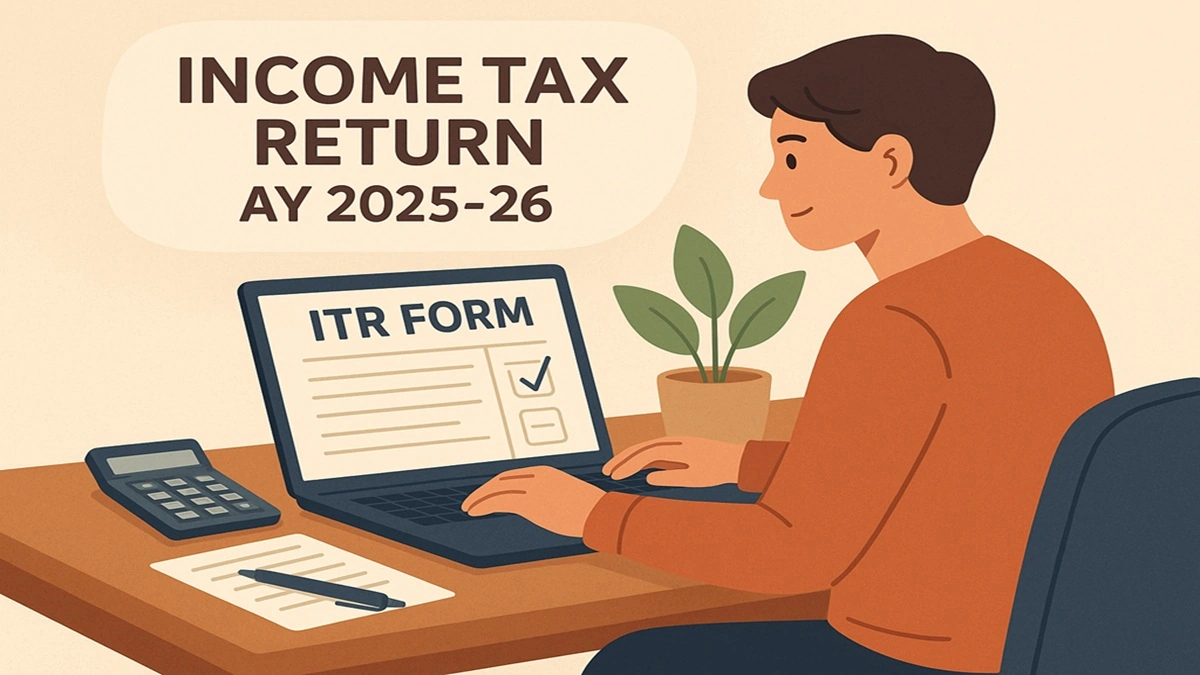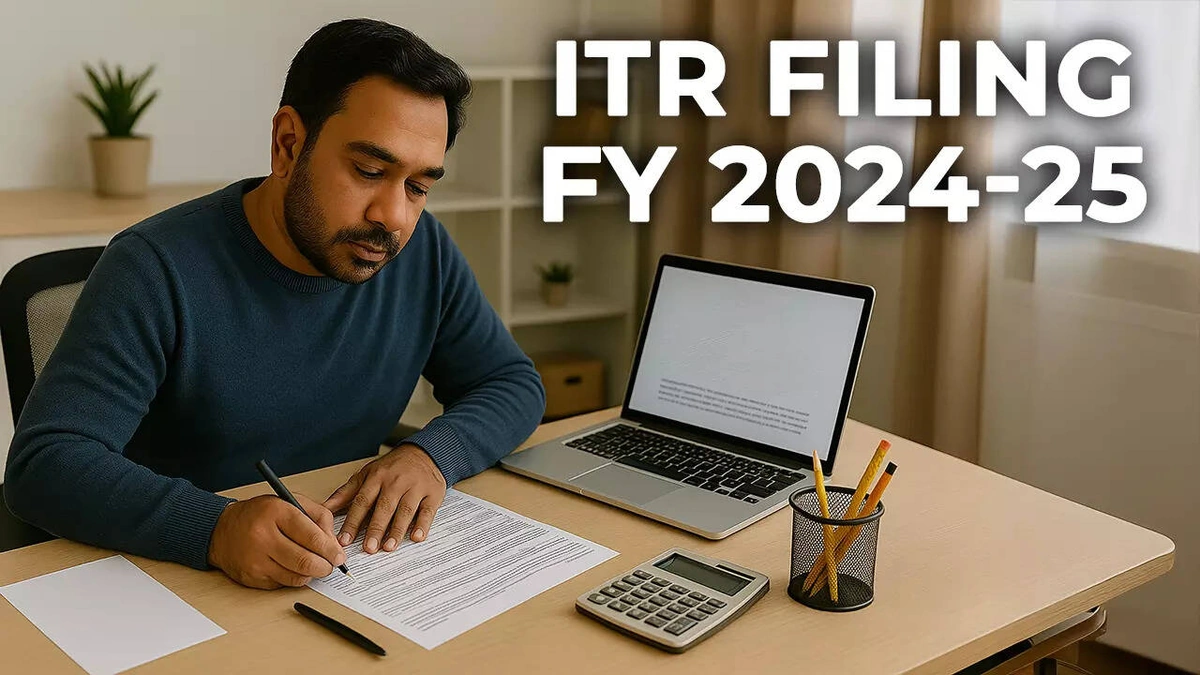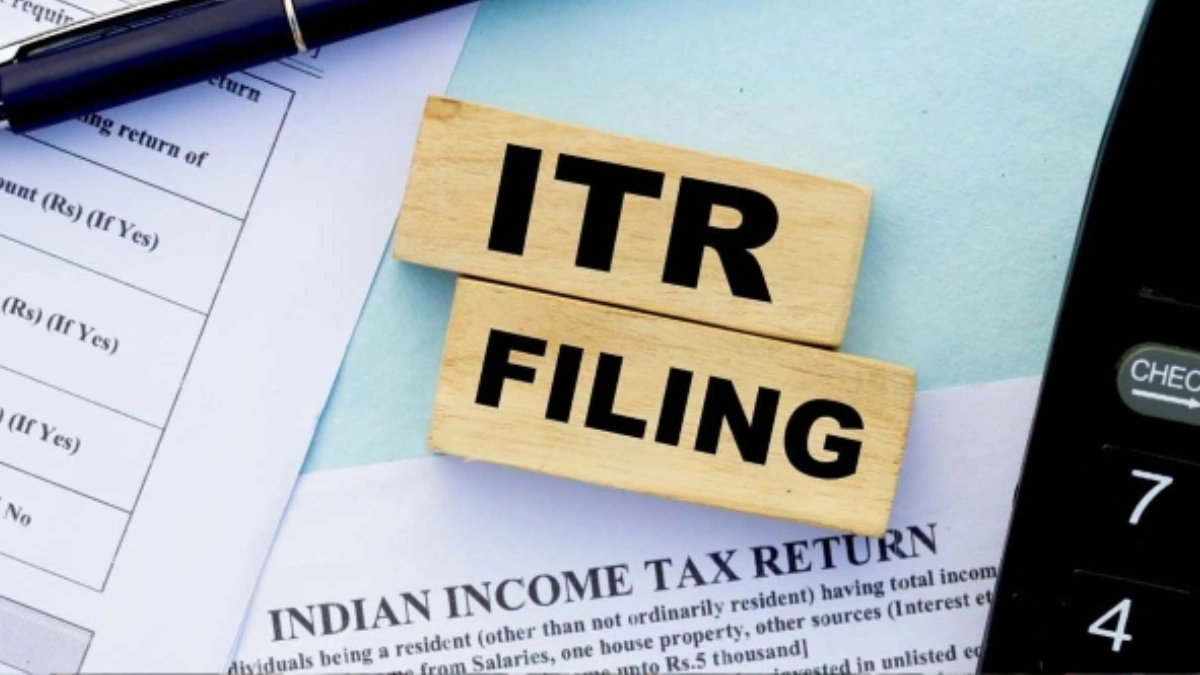Decoding ITR Filing | More Than Just a Deadline
ITR filing . Ugh. Just the phrase can send shivers down the spines of even the most organized folks. Let’s be honest, dealing with taxes in India can feel like navigating a maze. But here’s the thing: it doesn’t have to be a dreaded chore. Understanding why it matters and how to do it right can actually be empowering. And, dare I say, even a little… interesting?
Thank you for reading this post, don't forget to subscribe!Why Bother with ITR Filing? The Real Story

We often think of ITR filing as just complying with the government. Pay your taxes, submit the form, and you’re done, right? Wrong! Filing your Income Tax Return is about more than just avoiding penalties. It’s about building a financial identity, accessing loans, and demonstrating your financial responsibility. Think of it as your financial report card.
But beyond the individual benefits, there’s a larger, national perspective. Every time you file your income tax return , you’re contributing to the nation’s development. Your taxes fund infrastructure, healthcare, education – the very things that shape our society. Consider this your active participation in nation-building. It’s a pretty cool feeling, when you think about it.
And speaking of benefits, did you know that a properly filed ITR is often required when applying for a loan, especially for a home or a car? Banks and financial institutions use your ITR to assess your creditworthiness and repayment capacity. A consistent ITR filing history speaks volumes about your financial discipline. Plus, if you’re planning on traveling abroad, many embassies require your ITR as proof of your financial stability. It’s essentially your golden ticket to global adventures!
Step-by-Step Guide to Painless ITR Filing

Okay, now for the nitty-gritty. Let’s break down the ITR filing process into manageable steps. Don’t worry; I’ll hold your hand (virtually, of course) through the whole thing. A common mistake I see people making is rushing the initial setup. Take your time. Double-check everything. It’ll save you headaches later. We’ll also focus on e-filing of income tax return . It’s usually the best way, and more convenient.
- Gather Your Documents : This is the most crucial step. You’ll need your PAN card, Aadhaar card, Form 16 (issued by your employer), bank statements, and investment details (PPF, NSC, mutual funds, etc.). If you have income from other sources (rent, capital gains), gather those details as well.
- Choose the Correct ITR Form : This depends on your income sources. ITR-1 is for individuals with income from salary, one house property, and other sources (interest, etc.). ITR-2 is for individuals and HUFs not having income from business or profession. ITR-3 is for individuals and HUFs having income from business or profession. ITR-4 is for individuals, HUFs, and firms (other than LLPs) with presumptive income from business or profession. As per the latest notifications from the Income Tax Department, choosing the correct form is essential to avoid rejection of your return. According to official guidelines, you can find detailed information on which form applies to your situation.Income Tax Department website
- Login to the e-Filing Portal : Go to the official e-filing portal of the Income Tax Department (incometax.gov.in) and log in using your PAN and password. If you’re a first-time user, you’ll need to register first.
- Fill in the Details : Choose the assessment year and the ITR form. You can either fill in the details online or download the form, fill it offline, and then upload it. The online method is generally easier. Be meticulous and double-check all the information you enter. A small error can lead to delays or rejection.
- Verify Your Return : After filling in the details, you’ll need to verify your return. You can do this through Aadhaar OTP, net banking, or EVC (Electronic Verification Code). Aadhaar OTP is the simplest method. This step ensures the authenticity of the information you’ve provided.
- Submit Your Return : Once you’ve verified your return, submit it. You’ll receive an acknowledgement receipt with a unique acknowledgement number. Save this receipt for future reference. This is your proof that you’ve successfully filed your ITR. Now, wasn’t that easier than you thought?
And remember, it’s always a good idea to start early. Don’t wait until the last minute to file your ITR. The deadline is usually July 31st, but it’s best to get it done well in advance to avoid any last-minute rush or technical glitches. This also gives you time to correct any errors or discrepancies that may arise.
Decoding Common ITR Jargon

Let’s be honest, tax documents are full of jargon that can make your head spin. What’s the difference between gross income and taxable income? What’s a deduction, and how does it help? Let’s break down some of the most common terms.
- Gross Income : This is your total income before any deductions.
- Taxable Income : This is your income after all applicable deductions. This is the income on which you’ll pay taxes.
- Deductions : These are expenses or investments that you can deduct from your gross income to reduce your taxable income. Common deductions include investments in PPF, NSC, insurance premiums, and home loan repayments.
- Assessment Year : This is the year following the financial year for which you’re filing your return. For example, for the financial year 2022-23, the assessment year is 2023-24.
- PAN (Permanent Account Number) : A unique 10-digit alphanumeric identifier issued by the Income Tax Department. It’s essential for all financial transactions.
Common Mistakes to Avoid During ITR Filing

I’ve seen it all – from incorrect PAN details to mismatched income figures. These errors can lead to notices from the Income Tax Department and unnecessary stress. The one thing you absolutely must double-check on your itr filing is your PAN number. A simple typo can cause major problems. Ensure that the PAN you enter matches the one on your PAN card. This is the most basic, yet most critical step.
Another common mistake is not reporting all sources of income. This includes income from rent, capital gains, and interest. Ensure that you report all your income accurately to avoid penalties. Don’t assume that the Income Tax Department won’t find out. With advanced data analytics, they can easily track your financial transactions.
And finally, don’t forget to claim all eligible deductions. Many taxpayers miss out on deductions they’re entitled to, simply because they’re not aware of them. Consult a tax advisor or refer to the Income Tax Department’s website to learn about all the deductions you can claim. It could save you a significant amount of money. Make sure you’re aware of the last date to file itr , and don’t miss the deadline.
The Future of ITR Filing in India

The Indian tax system is constantly evolving, with technology playing an increasingly important role. The introduction of pre-filled ITR forms and the use of AI to detect tax evasion are just the beginning. I initially thought this was straightforward, but then I realized the implications for taxpayers. These changes are making the process more efficient and transparent.
One of the most significant developments is the increased use of data analytics to identify discrepancies and potential tax evasion. The Income Tax Department is now able to track your financial transactions more effectively than ever before. This means that it’s more important than ever to ensure that you’re reporting all your income accurately and claiming all eligible deductions.
Also, with the increasing popularity of cryptocurrency and other digital assets, the Income Tax Department is working on developing regulations to tax these assets. If you’re investing in cryptocurrency, it’s important to stay informed about the latest tax rules and regulations. The government aims to streamline the income tax e-filing process.
In the future, we can expect to see even more automation and digitization of the tax system. This will make it easier for taxpayers to comply with their tax obligations and reduce the scope for errors and fraud. The goal is to create a tax system that is fair, transparent, and efficient.
FAQ | Your ITR Filing Questions Answered
What if I forgot my application number?
Don’t panic! You can usually retrieve it from the Income Tax Department’s website using your PAN card and other details.
What if I missed the deadline for ITR filing?
You can still file a belated return, but you may have to pay a penalty. It’s best to file your return as soon as possible to avoid further penalties.
What if I made a mistake in my ITR filing?
You can revise your return before the end of the assessment year or before the assessment is completed, whichever is earlier.
How do I know which ITR form to use?
The Income Tax Department’s website provides detailed guidance on which form to use based on your income sources.
Can I file my ITR for free?
Yes, you can file your ITR for free on the Income Tax Department’s website. You don’t need to hire a tax professional if you’re comfortable doing it yourself. Keep track of your itr status for peace of mind.
What are the benefits of filing ITR?
Filing ITR helps in securing loans, visa processing, and building a financial record. It also contributes to the nation’s development.
So, there you have it. ITR filing doesn’t have to be a mystery. It can be a chance to take control of your finances and contribute to the nation’s growth. And who knows, you might even find it a little… satisfying?













